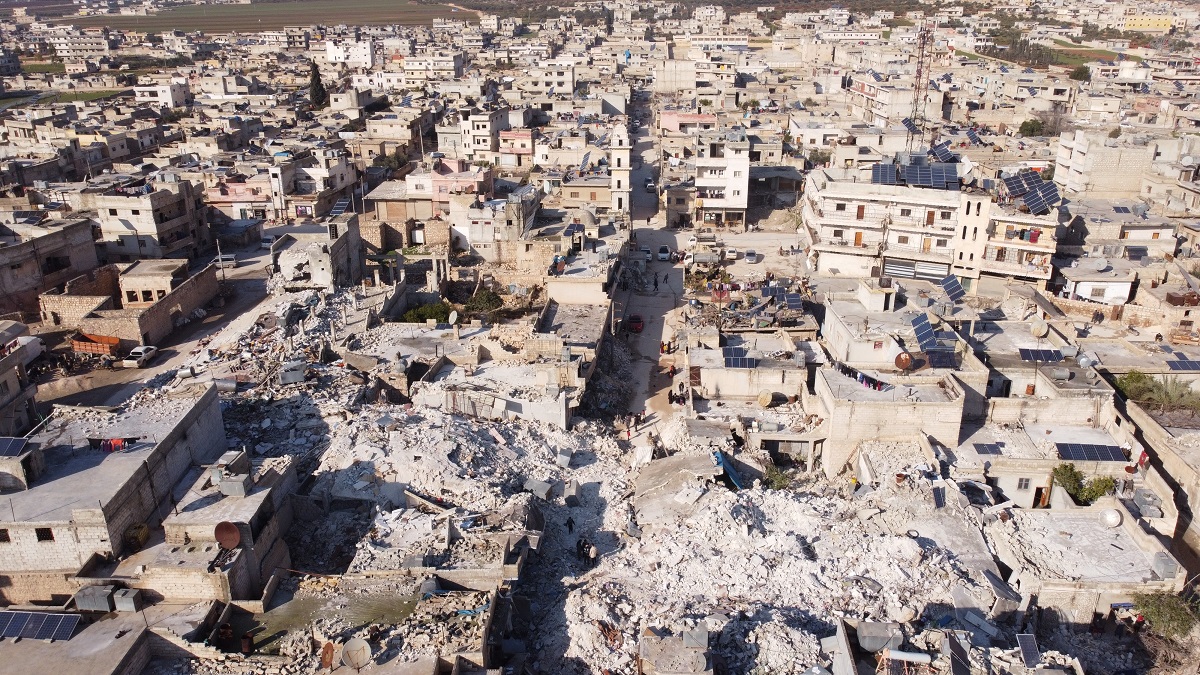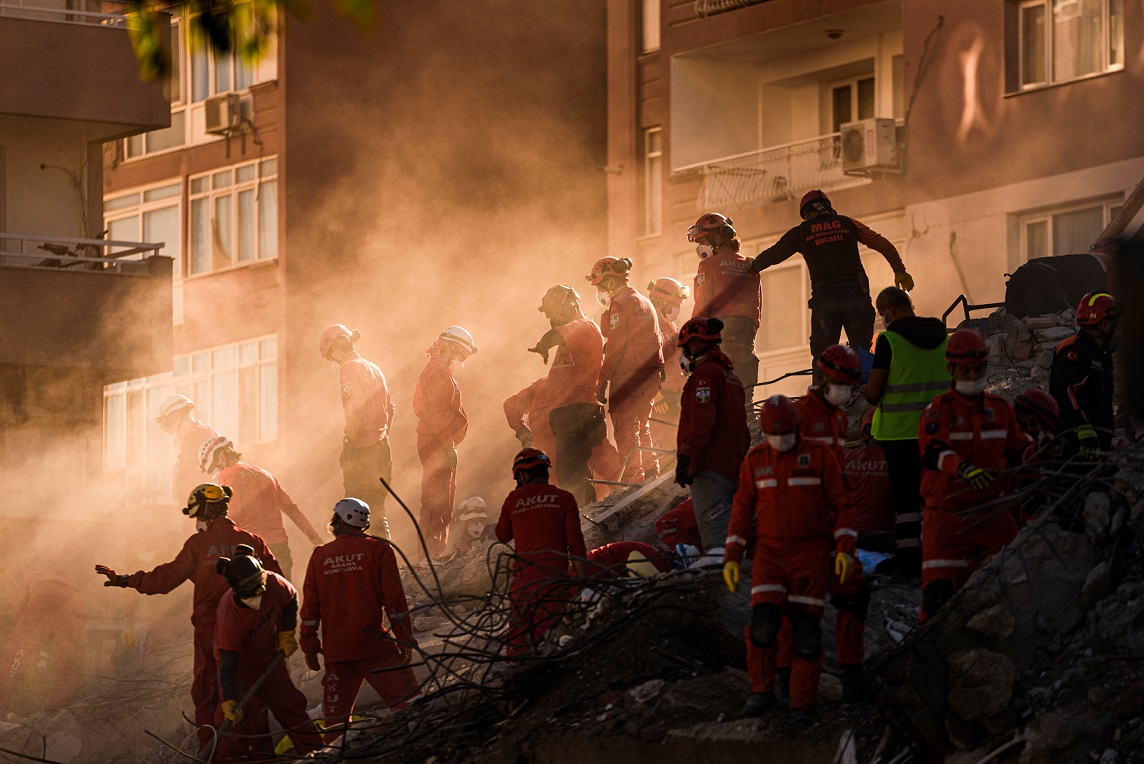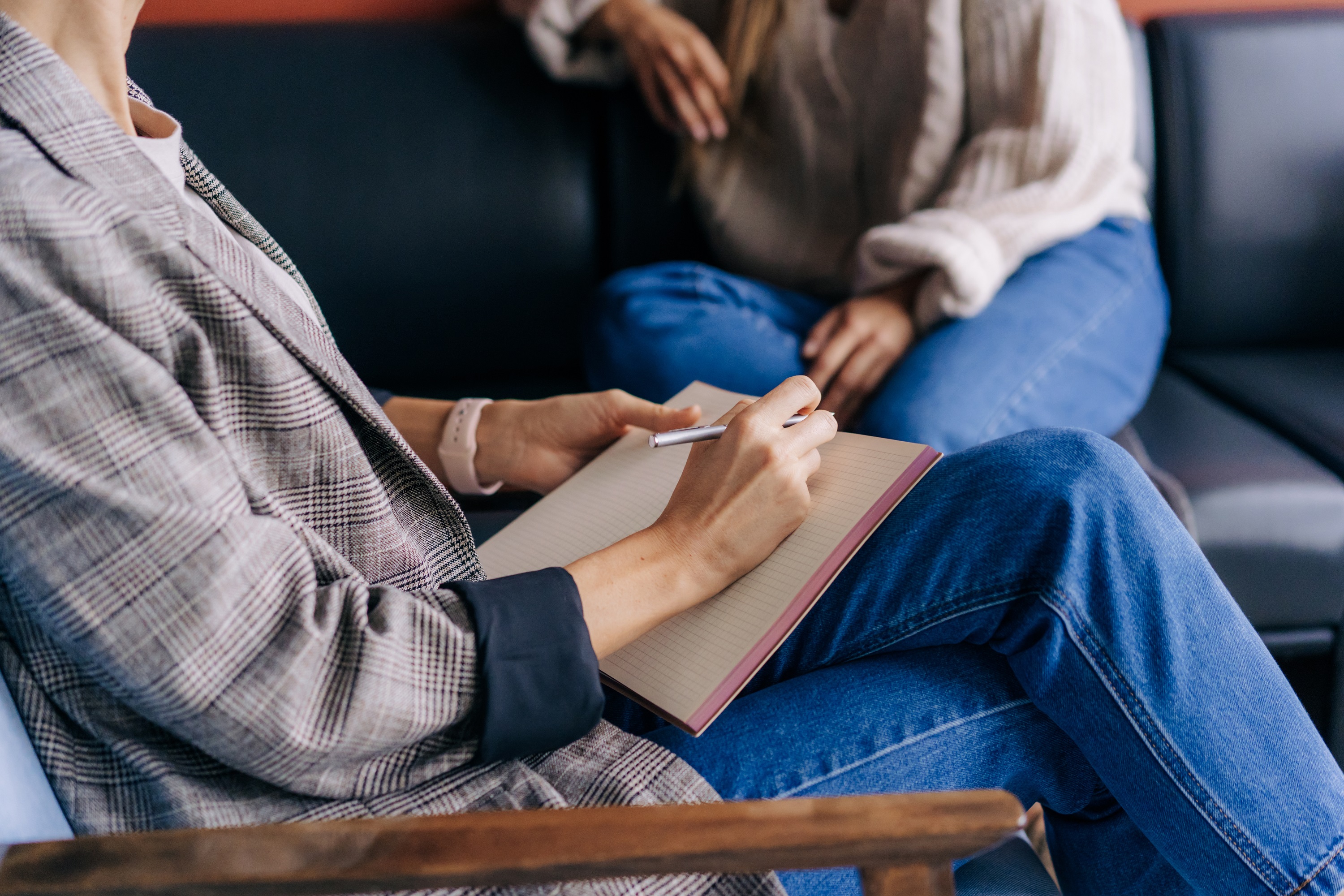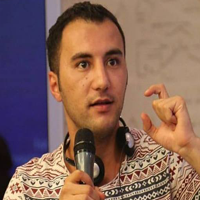التعريف الأكثر حيوية للمقابلات الصحفية هي أنّها "نقل المعلومة من إنسان إلى إنسان"، وسياق هذا التعريف يؤكّد أنّها عملية غير مضمونة دائمًا ولكنّها تبقى الحل الوحيد لتوليد ما لدى إنسان من معلومات وحقائق ومشاهدات.
ولكن في الحديث عن المقابلات مع أشخاص ناجين من الصدمات فإن نسبة "عدم ضمان نجاحها" يصبح أكبر، مع الأخذ بعين الاعتبار الظرف النفسي للشخص، والسياق العام الذي تجري فيه المقابلة، حيث إنه قد يكون بعد ساعات من وقوع كارثة طبيعية، أو عقب هجوم عسكري أدّى لفظائع مروّعة، وفي نفس الوقت قد يكون بعد أيام من فقدان أم لأحد أبنائها.
بالتزامن مع وقوع الزلزال المدمّر الذي ضرب جنوب تركيا وشمال سوريا، من الطبيعي أن يلجأ الصحفيون لإجراء المقابلات، سواء مع ذوي الضحايا أو أشخاص متضرّرين فقدوا منازلهم، أو مسعفين أو حتّى جمعيات خيرية ومسؤولين.

في هذه الحالة لا تنتهي حدود الأشخاص الذين يمكن مقابلتهم، فقد يتم مقابلة شخصٍ مازال يعتقد أن عائلته أحياءٌ تحت الأنقاض، وآخر يحفر قبورًا للضحايا، وناجٍ مازال يعيش الصدمة... إلخ
في الحالة السورية، لا يُعتبر هذا النوع من المقابلات جديدًا لكون البلاد تعاني من حربٍ شرسة عمرها نحو 12 عاما، ارتُكبت فيها كل الأنواع التي يعرفها الإنسان من الفظائع، وكما كانت هناك جهود استثنائية لتغطيتها ونقل معاناة الناس، ارتُكبت أخطاءٌ مهنيةٌ جسيمةٌ لا يمكن إحصاؤها.
وبالتزامن مع التغطية المفتوحة للزلزال وتداعياته القريبة وطويلة الأجل، تقف "مجلّة الصحافة" في هذا التقرير، عند بعض النصائح المهنية والأخلاقية التي تبقى في مرحلة عدم ضمان نجاح المقابلات، ولكنّها قد ترفع احتمالية الحصول على معلومات جيدة وتضمن احترام حقوق الناس.
يأتي ذلك بالتزامن مع تخبّط التغطية - التي رافقت الزلازل - وعشوائيتها، وتدخّل صنّاع المحتوى للخلط بين التغطية الصحفية والمناشدة لجمع التبرّعات، وبين دمج صناعة المحتوى مع التغطية غير الخبرية لتبعات الزلزال، الأمر الذي زاد من التشويش.
في الحديث عن المقابلات الصحفية في مناطق "الكوارث"، بدا أن جميع المتضرّرين لم يحظوا بفرصة الاستماع إليهم، بل فرض "الترند" شروطه كما جرت العادة.
الجميع يستحق صوتًا على وسائل الإعلام
في الحديث عن المقابلات الصحفية في مناطق "الكوارث"، بدا أن جميع المتضرّرين لم يحظوا بفرصة الاستماع إليهم بل فرض "الترند" شروطه كما جرت العادة.
على الرغم من حجم المعاناة الكارثي، لكن غالبية وسائل الإعلام تبنّت التغطية والتركيز على حالات معيّنة، بعد أن لاقت قصصها المأساوية "شهرة" على مواقع التواصل الاجتماعي، ورغم جدلية كلمة "شهرة" في هذا السياق، غير أن وصفها يبدو أقرب للواقع، إذ غابت التغطية عن الجميع، والبحث عن قصص الناس ومآسيهم المختلفة، مقابل تسابق وسائل الإعلام إلى تبنّي حالات محدّدة بعينها، ومحاولة تكثيف التغطية والقصص حول تلك الحالات.
هذا الأمر ليس مرتبطًا بالزلزال، بل هو جزء من موجة "الترند" الذي بدأ يقود وسائل الإعلام الباحثة عن استمرار التأثير والوصول إلى جمهور أوسع، وإن كان من شأنه أن يغيّب الأثر الجمعي - للمأساة - الذي ألحق خسائر فادحة ومتفاوتة بشرية ومادية ونفسية.
على الرغم من أن التركيز على "بطل" للقصة يُعتبر تقنية سردية تساهم في نجاح إيصال المعاناة، لكن في نفس الوقت تؤدّي المبالغة في هذا التركيز على تمييع مأساة أشمل لباقي المتضرّرين، وهو الأمر الذي حصل خلال التغطية سواء في سوريا أو تركيا، حيث تم التركيز على حالات محدّدة في حين لم تحظَ حالات أخرى بذات القدر من الاهتمام.

التحضير اللوجستي للمقابلة
من البديهي ألّا تتشابه المقابلة الصحفية مع أشخاص ناجين من كارثة الزلزال، مع مقابلة شخص يتحدّث عن وجبته المفضّلة وكيفية طهيها بأفضل طريقة، في كلتا الحالتين تحتاج المقابلة إلى تحضير مسبق.
غير أن استحقاقات مقابلة الناجين من الكوارث تتطلّب مزيدًا من التركيز في التحضير اللوجيستي لها، وهو يختلف عن التحضير المعلوماتي للمقابلة، من قبل التسلّح بالمعلومات الكافية عن خلفية الموضوع وطرح أسئلة مركّزة وواضحة تجعل الإجابة سهلة على الضيف.
تشمل التحضيرات اللوجيستية في حالات النجاة من الكوارث بشكلٍ عام، اختيار المكان المناسب للمقابلة مسبقًا. البعض لا يفضّل الحديث أمام الناس، وقد ينهار بكاء أو غضبًا من شدّة الأهوال التي مرَّ بها، وهذا ما حدث معي بالفعل في أكثر من مقابلة أجريتُها.
إضافةً لذلك يتضمّن الإعداد اللوجيستي تحضير الضيف عاطفيًا، ليكون جاهزًا للحديث بأريحية عن أهوال شاهدها أو خسائر فادحة تعرّض لها. ولعل الطريقة الأضمن تكمن في محاولة كسر الجليد، عبر إبعاد الصحفي معدّات التسجيل والتصوير عنه، وفتح نقاش ودّي يكسر الجليد مع المصدر ويجعله يشعر بالراحة ليباشر حديثه، وفي نفس الوقت يجعل الصحفي أكثر قدرة على تحديد الحالة النفسية والمعنوية للمصدر ما يسهّل عليه تسيير المقابلة.
يُعتبر اختيار زمان المقابلة وتوقيتها واحدًا من عناصر التحضير اللوجيستي التي لا غنى عنها، فخلال الحرب السورية كان صحفيون يحاولون إجراء مقابلات مع أشخاص مفجوعين بعد لحظاتٍ من القصف وما خلّفه من خسائر بشرية لأسرهم، البعض منهم كان يحتد من طلب مقابلته وآخرين كانوا ينفجرون بكاء وغضبًا أمام الكاميرات، وفي كلتا الحالتين من الصعب تحصيل أي قدر منطقي من المعلومات والمشاعر من المقابلة في هذا التوقيت.
أما بالنسبة للمدّة الزمنية للمقابلة، فالتجارب الميدانية تؤكّد أنه ليس من الضروري أن يحصل الصحفي على كل شيء، سيما أن ظرف ما بعد الكوارث دائمًا يتطلّب احترام عدم مقدرة الناس على التحدّث والشرح المسهب والإجابة على كل الأسئلة، في بعض الأحيان أظهرت المصادر بعد الفظائع تعابير في لغة الجسد كانت تشرح أنّها تريد التوقّف عن التحدّث.
على الرغم من أن التركيز على "بطل" للقصة يُعتبر تقنية سردية تساهم في نجاح إيصال المعاناة، لكن في نفس الوقت تؤدّي المبالغة في هذا التركيز على تمييع مأساة أشمل لباقي المتضرّرين.
تسليم الإيقاع للضيف
المعروف أن لكل مقابلة صحفية إيقاعٌ يعتمد على خصوصيتها، فإجراء مقابلة مع ناجٍ من كارثة لا يمكن تشبيهه بمقابلة المواجهة مع مسؤول متّهم بانتهاكٍ ما لمواجهتهِ بالوثائق التي تدينه. هذه الأخيرة لديها نفس اتهاميً وحادً، وقد ينتهي في كثيرٍ من الأحيان في احتداد النقاش بين الصحفي المحاور ومصدره.
في حالة مقابلة من نجوا من ذكريات أليمة، تنصح التجارب بتسليمهم إيقاع المقابلة كاملا إلى المصدر، وجعله يتحدّث بالطريقة التي يراها مريحة له. أفضت هذه الطريقة أنها تمنح راحة أكبر للمصدر ونتائج أكثر أهمية من حيث المعلومات والمشاعر والخبرة الشخصية بعد الحوادث الأليمة.
أما عن كيفية تسليم إيقاع المقابلة للمصدر، فيتطلب ثلاث خطوات، وهي الشرح للمصدر بأنه سيتحدّث بمنتهى الأريحية خلال المقابلة، وطرح أسئلة تتطلّب إسهابًا وشرحًا عمّا جرى معه، وعن ردّات فعله وانفعالاته العاطفية، وأخيرًا الامتناع عن طرح الأسئلة التي تضعه محل تشكيك أو استجواب ولوم.
كما أن التواصل اللفظي والبصري والإنصات بجميع الحواس مهم هنا؛ لأنه يعطي المصدر مزيدًا من الثقة بأهمية روايته للمصلحة العامة.
الابتعاد عن المبالغة العاطفية
حتّى الآن مازال هناك اعتقادٌ سائدٌ بأن مقابلة الناجين من الكوارث والحروب يجب أن تتضمّن مشاهد مشبعة بالمبالغة العاطفية، واستحضار الذكريات المؤلمة والبكاء، حتّى إن بعض الصحفيين يلجؤون لقيادة المقابلة حتّى ينتهي الأمر بها في الانهيار العاطفي والنفسي، حتّى لو كان ذلك على حساب الرغبة المسبقة للمصدر.
من الجيد طرح أسئلة عن تفاصيل ما جرى، وعن تفاصيل النجاة، والخسائر التي مني بها الشخص، وانطباعاته العاطفية الحالية، وخططه لتعويد نفسه الصمود، غير أن التركيز على استحضار الذكريات المؤلمة أو استحضار أقارب المصدر الذين قُتلوا أو فقدوا ليس له قيمة إخبارية أو حتّى إنسانية لتزيد تعاطف الرأي العام مع هؤلاء الناجين؛ لأن الأحداث التي مرّوا بها بحد ذاتها كافية لإثارة هذا التعاطف.
التركيز على استحضار الذكريات المؤلمة أو استحضار أقارب المصدر الذين قُتلوا أو فقدوا ليس له قيمة إخبارية أو حتّى إنسانية لتزيد تعاطف الرأي العام مع هؤلاء الناجين؛ لأن الأحداث التي مرّوا بها بحد ذاتها كافية لإثارة هذا التعاطف.
تدقيق المعلومات وترتيب الأحداث
هناك الكثير من التفسيرات في علم النفس التي تشرح شدّة الأثر النفسي للأشخاص الذين عاصروا أحداثًا أليمةً قد لا يفهمها الصحفي، ولكن من المهم دائمًا توقّع وجودها وأثرها خلال إجراء المقابلة، ففي بعض الأحيان تسرد المصادر أحداثًا غير دقيقة تاريخيًا، أو غير مرتّبة زمنيًا، وفي بعض الأحيان هناك معلومات ووقائع يصرحون بها ولكنّها غير منطقية الحدوث، وهذا أمرٌ طبيعي قد يستمر حتّى لأسابيع مع بعد هذه الأحداث الأليمة وفي بعض الأحيان لفترةٍ أطول.
في حال لم يجد الصحفي فرصةً للتحقّق منها مباشرةً خلال المقابلة مع الضيف، لا بد هنا من تدقيق الحقائق والمعلومات مرّة أخرى، ومقارنتها مع شهادات أخرى، إضافةً إلى إجراء بحوث كافية من المصادر المتنوّعة للتحقّق من أن كل ما ورد في المقابلة صحيح.








































